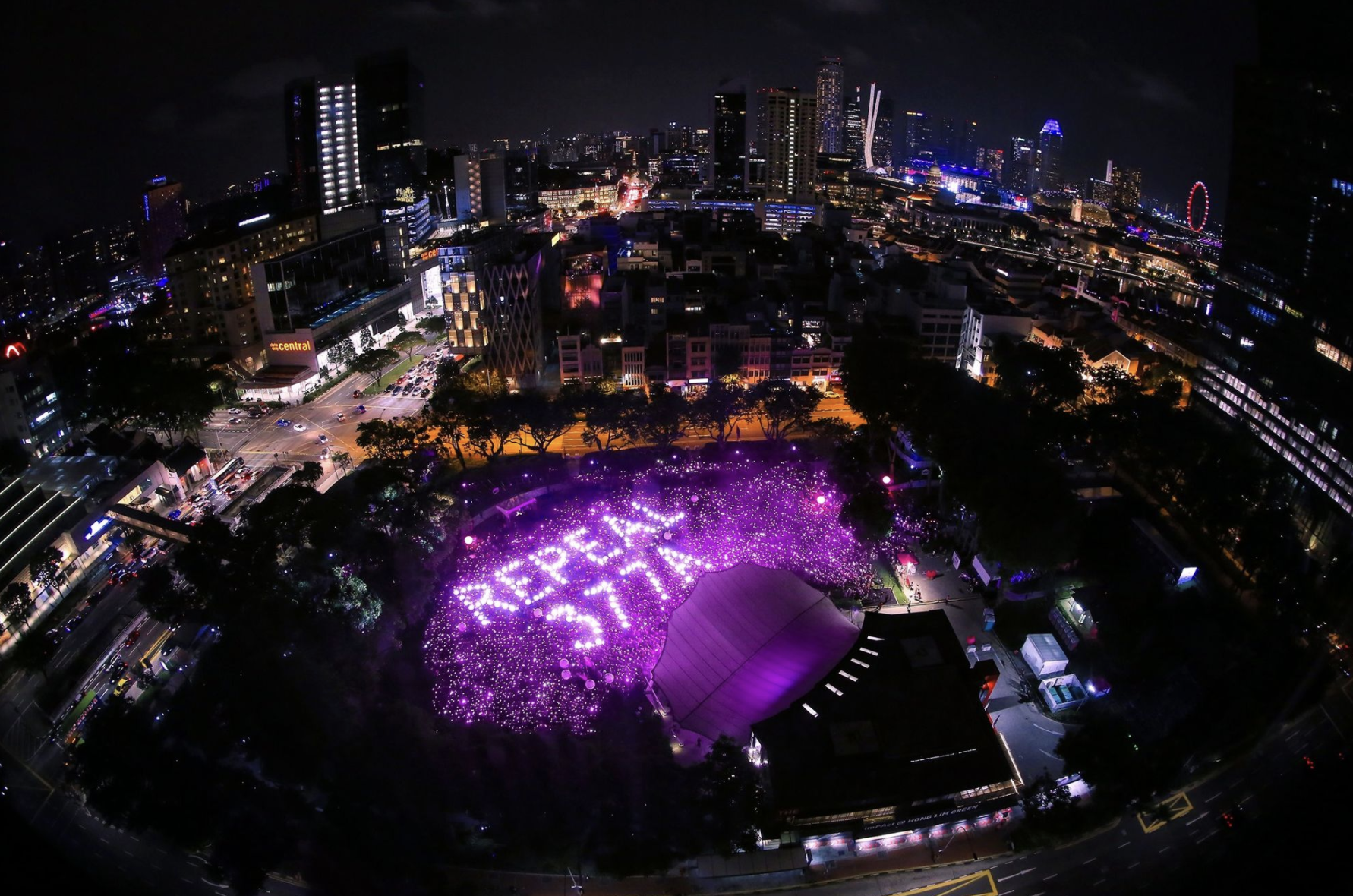
It wasn’t all that long ago that it seemed like Section 377A was never going be repealed, but now it’s on its way out.
Prime Minister Lee Hsien Loong delivered his National Day Rally speech on Sunday night and devoted a part of it to the issue of Section 377A of the Penal Code, the colonial era law that criminalises sex between men. “From the national point of view, private sexual behaviour between consenting adults does not raise any law-and-order issue,” he said. “There is no justification to prosecute people for it, nor to make it a crime.”
Furthermore, while the Court of Appeal dismissed constitutional challenges to S377A earlier this year, the judges did say that the law is entirely unenforceable given the current prosecutorial position on the matter, and the government was later advised by both the Attorney-General’s Chambers and the Minister of Law that future court challenges might actually succeed in striking S377A down. The PAP government has therefore decided to take action first and repeal S377A.
This has been a long, long time coming. LGBTQ activists and their allies have fought for decades to get rid of this law. In 2017, I wrote this feature looking back on the 2007 Repeal 377A campaign, in which a parliamentary petition with 2,341 signatures was submitted by Nominated Member of Parliament Siew Kum Hong. (It was supported by an open letter to Lee Hsien Loong with 8,120 signatures.) The campaign did not succeed back then — and some horrifically homophobic things were said in Parliament — but it, and so many other efforts, built the foundation upon which the work continued… bringing us to today.
Still, the relief, joy, and excitement has been tempered by what Lee also said during his speech:
“[Even] as we repeal S377A, we will uphold and safeguard the institution of marriage. Under the law, only marriages between one man and one woman are recognised in Singapore. Many national policies rely upon this definition of marriage — including public housing, education, adoption rules, advertising standards, film classification. The Government has no intention of changing the definition of marriage, nor these policies.
However, as the law stands, this definition of marriage can be challenged on constitutional grounds in the courts, just like S377A has been challenged. This has indeed happened elsewhere. If one day such a challenge succeeds here, it could cause same sex marriages to become recognised in Singapore, and this would happen not because Parliament passed any such law, but as the result of a court judgement. Then, even if the majority of MPs opposed same sex marriage, Parliament may not be able to simply change the law to restore the status quo ante. Because to reverse the position, Parliament may have to amend the Constitution, and that would require a two-thirds majority.
[…]
We will therefore protect the definition of marriage from being challenged constitutionally in the courts. The legal definition is contained in the Interpretation Act and the Women’s Charter. We have to amend the Constitution to protect it, and we will do so.”
While it’s undoubtedly positive that gay men will no longer be considered criminals, what Lee told us of the government’s intentions last night also significantly undermines the purpose of repealing S377A. The struggle is very much not over.
Why repealing Section 377A is important
Section 377A hasn’t been actively enforced for a long time, and the court ruling earlier this year made it clear that it cannot be enforced as long as the prosecutorial position on the matter remains the same. This means that there hasn’t been much danger of men being arrested for having sex with men for quite some time. Still, repeal is good because it makes this official, and not dependent on a prosecutorial position that could change.
The most tangible effect #repeal377a will have in my work is that I no longer have to inform participants that they should not disclose their sexual practices under S377A or I may need to report them to the relevant authorities. 🤡
— Rayner Tan (@raynerkjtan) August 22, 2022
…Time to file those protocol amendments. pic.twitter.com/PNEa8wIViP
The repeal of S377A is also important because it has implications that go beyond the criminal element. For years, S377A has been a symbol of legitimised prejudice, identifying LGBTQ people as different (in an undesirable way) from everyone else and indicating that it’s okay to discriminate against them. LGBTQ activists have pointed to how S377A has a variety of trickle-down effects: it was used to justify the exclusion of LGBTQ people and their stories from the mainstream media, to suggest to children in sexuality education courses that there’s something wrong with being queer, to explain policies that throw up barriers for LGBTQ Singaporeans when they try to get access to things like public housing.
